Prescott Perez Fox is the founder of The Busy Creator and joins the In the Clear podcast to talk about transparency in the creative space. “The Busy Creator is a website and podcast about creative productivity. So, it’s essentially a resource for folks in the creative fields. This is for designers and illustrators, and writers, photographers, and really anyone that makes things, creator. And really, I wanted to offer folks insight on how things get ahead they get made, how things happen.”
Hello this is Tonya Dawn Recla with the In the Clear Podcast. And I’m excited to have with me the founder of the Busy Creator Brand, which is a lot of fun. And this is Prescott Perez Fox, and they have done a hundred episodes on this podcast, and that’s no small feat. I am really excited to have him come and speak with you all about some of the things he’s seeing within his industry and how that looks from the transparency perspective and how to establish trust in a really saturated and busy market space. And so, please join me in welcoming to the show Prescott Perez Fox. Welcome!
Hey it’s great to be here. Thanks for having me.
Oh absolutely. I’m delighted to have you here sir. So, let’s jump in and talk just a little bit about Busy Creator. What’s going on there?
Yeah. Well, the Busy Creator is a Website and Podcast about creative productivity. So, it’s essentially a resource for folks in the creative fields. This is for designers and illustrators, and writers, photographers, and really anyone that makes things, creator. And really, I wanted to offer folks insight on how things get ahead they get made, how things happen. So, not just the finished piece, which is very inspirational and it’s the thing you look at on Pinterest, and you’re like, oh man, that’s good. But actually, how it gets done on a daily basis. So, this is workflow, this is software, this is agency culture and employment issues. This is logistics and finance too, especially for solo practitioner’s freelancers, they don’t really have a background in accounting. So how do you get a client to give you a down payment and how do you conclude a project? And things like that. So, it’s mostly cool yeah, it’s needed It’s a big issue though it’s like a monumental undertaking. And mostly I’m doing it as a podcast. I’m also blogging and also posting resources and other things to the site.
Very close. How did you get into that?
Well it’s a side project and the need I guess arose because I was a little frustrated in my current job at the time. And I was like hang on. The only way that I’m really going to be able to exercise my ambitions is to have a side project because I wasn’t in, let’s say, a top 10 firm working for like top 10 global clients, which is the first way the conventional way. But then I was seeing how a lot of people, my peers and other industries, that you can bring a lot of notoriety to yourself through a project. And for some people, this is a whatever-daily napkin sketch, or it’s some pop up store. And I’m thinking, OK, well let’s do a podcast, and let’s get in for the long haul and talk to other practitioners and learn from them and then each it right back. So, there’s the altruistic side of seeing the industry and seeing where folks need to learn and what they’re struggling with.
Very cool. I love that. And I like that it grew out of your own creativity with a guy like how do I do this like how do I contribute in this fashion. That’s pretty awesome. So, let’s add in that idea of transparency. Do you ever, on the show, about how do you engage in dialogue with them? What do you do when somebody asks how do they know you’re for real? Have you ever dialogue around that?
Yeah. The funny thing is that creatives are actually very open and sharing. And I’m a designer. I’m a practicing designer, and with my clients, most of them have never actually asked me. They’ve never questioned the work in my portfolio. But if they did, I’ll be happy to show them a whole case study and show them how it started. And even sketches and the ideation process at the beginning of the project and then show them because that’s a process as well. So, if it’s where the past client I could do it again with them and I’ve sort of codifying my process as well.
But most creatives are like that. And they’ll say, yeah, we did this last year, and here’s how it started, here’s where it went wrong. And they save everything as well. So, a lot of designers and writers and photographers are packrats, digital packrats. So, if for some reason a client wanted like your second draft of the logo or something, you could dig it up if you wanted to talk about it. That’s one side of it, I guess. The other side is that, if someone’s making those requests for you, and you’re not even in a paying relation to the writer, they’re not actually clean. There is a prospect at some point it’s it becomes about time. It’s like listen man I’m not turning over a college thesis just to do a brochure like do you want to work with me or not? That is another part of it definitely becomes a balance.
And then we spoke with one of our members in The Directory about that exact thing. We did a whole meet in the middle for a while because he she had a whole process where if people ask for references, he didn’t provide them unless they had at least taken some action toward showing that they were interested in working with him. And I saw his viewpoint after we dialogued about it because, exactly what you’re talking about. Especially solo practitioners, consultants, people who do operate their own one person show. Time is money. And it’s very time intensive to respond to requests like that. I think that’s to toot our horn, I think that’s one of the biggest selling points of The Clear because that’s all been done for you on some level. And so, you get the opportunity say look, I’m legit. Not from the creative aptitude, but from the year and legit company. You’re a real person. That type of stuff. Yeah. And I totally get. And so, it is always a balance between your time. And to your point, I think we always talk about your client due diligence. And sometimes if the person is really pushing persnickety up front sometimes it’s just easier to say I don’t think this is a good fit because it’s usually very telling about things to come.
Oh, yeah totally. And same thing with this sort of controversial now in a lot of creative fields about doing an RFP or doing a proposal. And I’m in some online groups and things that people talk about this, and say hey do you guys do proposals to you. How long are your proposals? And some people are like I don’t do all my flat out refused. And some people like I have a standard two-page capability’s document, whatever the other person’s, like I’ll do it. But it depends on the size and the effort. Somethings for example like anything in the public sector there’s going to be some big process there’s going to be some documentation and like a standard form that you have to go through. So, you have to look at that. No, this is the funny thing that so many creatives. Want to do good in the public sector. They want to work for museums and waterfront commissions or whatever the heck. But. It’s just so arduous to get involved with the red tape and all these compliance issues. So, for a one-person firm who’s saying for example like hey I can redo your whole logo and your whole identity system whatever. All you have to do is like give me someone to call and they won’t do that there’s no phone number available because that would be an inside bidding or maybe like hang on. So sometimes it’s a little baffling in that side of things. But the other thing I want to add it’s hard to go back to your previous point that a lot of creatives especially firms will celebrate their own agency culture and they’ll post photos of their company and they’ll paint the front of the building and then they’re like stand in front of it for a group photo like they’re very happy to celebrate their workplace and their work product. So, the fact that they would be like potentially hiding it and hey you guys I saw you guys in a photo but it’s actually your office. Like usually yes, they then.
I guess the only way the creatives, I’m speaking more specifically to designers, and web firms, and advertising firms, that type of thing because that’s what I’m familiar with that I guess the one area of deception we sometimes run across is that folks will say like oh we have an office in New York and another one in Singapore and another one in London. But actually, it’s just like one person in London. And so maybe he can rent a conference room if you if you need one that type of thing.
Some folks try to appear bigger than they are. And I don’t think I’ve ever heard of a case where people want to appear smaller than they are, but I guess it does happen. It becomes a cultural issue within the creative fields. It’s like, how do you write your copy? When you have a website and talk about “we did this,” “we engaged such-and-such client,” is it actually just you as one person? And if so, why don’t you just own it and say, “Hey, I’m a solo practitioner. I team up with freelancers when I need to.” Some clients are going to be turned off by that, but other ones are going to be really attached to that and they’re going to know exactly what they’re getting. So, that’s like a new movement too, is to be yourself, even if you’re small and admit what’s actually happening. And say “Listen, I live in New Jersey, but I call it New York because no one knows where Hackensack is, or whatever it is.
Well and I love that you’re bringing all of that up. Those are conversations happening in every industry because that trust component is becoming so crucial. We created, perhaps inadvertently, a world where it is difficult to know who’s legit and who isn’t, unless you’re able, or even have the thought to dig under the surface a little bit, and just make sure that that the person is actually a legitimate person, that they can do what they claim to do, and all of that good stuff.
Unfortunately, in our industry, we do see flat out lying, like flat out. There’s a lot of companies that make decent money simply pretending to have a company. And it’s easy to do. I think that what I love about what you do is you naturally attract the people who are improving their business, and want to know about business, and want to make theirs better, and really want to serve their clients better. You have a real opportunity to change that dialogue a little bit, and say, “OK within us, the legit people, like how can we help our clients know that we’re not that?” And that’s really all you really have to do because in the creative field it’s either you’re creative or you’re not. You can make a good product or you don’t. Your products speak for themselves. The issue is just getting over that initial hurdle of do-I-even-want-to-see-your-portfolio, type of thing. That’s a worthwhile conversation to be having, especially because, as you as you pointed out, so many people have these amazing gifts and really just want to work with cool, appreciative clients. It’s like, can we do a matchmaking service or pair cool, appreciative clients up with really cool people who have cool skill sets? That would be an amazing business.
Absolutely totally. Let me come back to just a second because I thought of something. A lot of times with firms in web design, and marketing, and graphics, or whatever, it is that you’ll see their site and it’s done well. What usually gives you the impression of confidence, and this is what branding is done well, is that you have an understanding of who you’re dealing with and it’s clear there’s a sense of clarity. And even if it’s small, you can read their web site, look at their photos, whatever it is, and you say, “Oh, this is a three-person web design company in Cleveland. Cool.” You’ve learned that and you are clear about that. And not only that, but a third, if they’ve really done their site well, you’ll also learn from their colors, and from their choice of type, and from their choice of photos that they have a certain personality. So, it’s like, “Hey, this is a web design firm and they specialize in metal bands and rock concerts.” That’s going to have a certain aesthetic.
So, this is when branding really comes together. You get that clarity and you get that purpose. Especially with a small business. You’ll often see a photo, you’ll often see an address, and you can see the social media links, so you can Google it. So, you don’t really have to be a detective. You just have to go one layer deep, literally. And then, if somebody doesn’t have any social media links, they don’t have any address, they don’t have any photos, it’s almost that they’re hiding by default. So, you’re like, “Wait a minute, what is going on here?” And you see that a lot with search engine marketing, with SEO. Sometimes it’s just coded Web sites that like services, that will take your designs and turn it into a coded Web site for people that sort of don’t know how to program, but they can apparently design a web site, and those types of things. Where you’ve read the site and you’re like, “I actually don’t know what these people do. I don’t know if they’re skilled. I don’t know if they’re good at it. I don’t know where they are located.” And you have to use your best instinct as a consumer because, like in so many situations, don’t blame the consumer just for coming to it with his own instincts.
And you’re touching on two really crucial point. One is that good branding is like gold. It is an art. I don’t care what anybody says. I know everybody out there thinks they cracked the code. It is an art to do all of those components, like you talked about. And I can tell you, just with the number of clients that we do this work for, the biggest issues we see is ineptitude, more than blatant fraud and scam. It’s ineptitude. And so there just aren’t that many people who are that good at it, was one issue that you’re talking about.
But the second piece is, and I love that you’re saying all this, one of the initial things when we first started looking at how can we really provide something of value to clients in terms of training and teach them what to look for? And one of the things we teach and look for the necessary evils of business. And there are just certain components that successful businesses have these days in certain industries. And one of them is social media and an online presence. And if that isn’t there it doesn’t mean they’re a bad company, but you should ask why. What is it about their business that would not have them be there? And there are legitimate reasons for that. Well there’s a lot of not so legitimate reasons as you pointed out.
And I love that you’re saying all this. I will tell you, the vast majority of businesses before they hire people, don’t ask these questions. They don’t look. We’ve had a number of situations where clients called, this is back when we were heavy into the consulting side of the house, and wanting us to look into people, which started asking a few pointed questions. And it was shocking how little they knew about this person they were thinking about hiring.
Well that’s a whole other side of things, too. It is like, how does someone represent themselves as an employee? Because if you can craft a message, I think it’s easy to get through one or two interviews and hoodwink somebody, especially if you speak the language of viability, if that makes sense.
Absolutely. And I was speaking more like service providers and transactions. But we see it in employment screening as well. And so, there’s all these components. And, just the fact that you’re pointing those out is great, and rare. Much rarer than you would realize. And so, I love that that’s just something that is common sense to you. Like why would you hire an SEO person if you can’t find them anywhere? That’s not a good indicator.
There is there is a situation like the cobbler’s kids never have shoes. I get it. It took us about three years before we did our own due diligence packet. When finally, somebody asked for it and we’re like, oh yeah that’s probably a really good thing for us to have on hand. Like you just don’t think about doing for your own business sometimes, what you do for your clients. And so, I do get that piece but it’s. But there are indicators and I think that that’s that circles back around to what you are or what you’re indicating.
Yeah definitely. And by the way, my Web site too, I think it’s like six years since the last time I updated the actual design of it. Like I’ve added new portfolio projects, but I haven’t redone the whole site. I don’t really do web design. I do more branding, and packaging, and logo design. But it’s getting to the point of making it a little embarrassing, which is funny.
Well it’s tough though. It’s like you go where the money is, and there’s no immediate money on your site. Obviously, over time, of course, you have to do that. But when you’re busy, and sometimes it’s a good indicator. Like they’re busy doing other people’s sites. So, when you say just don’t go look at mine, here go my clients.
Oh definitely. And what’s funny too, on that same point like there are firms in New York that I’ve worked at that basically didn’t have a Web site. And they were, just based on the size of the employees, they’re multi-million dollar companies. And they’re like, “Yeah, we don’t have a website, we just have clients. Everything is word of mouth, and it’s business relationships. We don’t get inquiries based on the front door of our website.”
I remember hearing, this is now secondhand, but Jordan Hartridge from the Art of Charm, was talking about a company that he met the CEO or something. And he never heard of this company before, but apparently, the back-end technology on some of the biggest Web sites on the web. But they barely even have a Facebook page. Well, the CEO was like, “No one’s going to like us. They don’t even know we exist. What are they going to comment on our blog? Which doesn’t make any sense. We’re just a back-end technology. We’re B to B, and we are hard core B to B, really industrial B to B. Our clients are not the bagel shop in town.” They are like Cisco. I don’t even know but that makes sense to that you don’t have to use the same tactics and tools if you’re not visible the same way.
And it’s just knowing what questions to ask. And there are degrees of success in terms of when you’re pounding the pavement and creating your own stuff. Like you’re going to try a little bit harder. The social media, web site game, and then perhaps you’ve got so much work and so much referral business that you don’t really need to upkeep that stuff, and that’s its own look and feel. There’s other indicators of success at that level. Like you. And you obviously just do this stuff naturally because you said, like by the size of their employees, like how do you have that many employees if you can’t pay payroll? That’s an indicator. And so, just training yourself to look for certain things and making sure that there are congruencies, rather than that they’re just pieces that don’t match up. Some people do it very naturally, other people not so much.
Exactly. And I guess there’s also room for a mention here, that I’m always amazed that some companies have almost automatically have big, lucrative, continuous projects, and other companies that are really nice people, really talented people, and they run a tight ship, but they just can’t seem to bring in new projects. For the service, oriented businesses, that applies. But think of like there’s probably a really great restaurant that of your town that maybe went out of business and it’s like they had good food, but they didn’t have the traffic that they needed. And then there’s the opposite case. McDonald’s is the opposite case, where it’s garbage. But everyone knows about it. So, you always have that situation.
I’m always so fascinated by that. And in design, specifically, there are, I don’t even know how to call them, like I don’t want to say like bad design firms, but there are firms that are making a lot of money, making good business, there are solo practitioners who make $200,000 a year from their underwear, doing substandard work. And they’re not up, they’re not pushing the industry, they’re not winning awards, they’re not speaking or anything, but they have captured a market, and they’ve captured the attention of those particular clients, which is really fascinating. So, I wish I could explore that, as well, from a clarity point of view, or just from a business point of view on how they work.
There’s so many components to that. Now you’re speaking my other language, which is in a whole personal development and self-actualization, that fear. And when you’ve got, especially, entrepreneurs, and where it’s so personality and individual specific at its infancy, hyper dependent upon the architecture of the people involved. If those components are there. And so, a lot of times it comes down to straight like chutzpah, like confidence. Like do you have the grit the determination the willpower to push through certain growth phases. And in my opinion that’s the biggest indicator of success in most cases. And then on top of that let’s throw and throw on top of that the branding issue that we talked about, and good branding can sell just about anything. As it’s just it’s just that way and there’s a viral component to it. But I’ve seen phenomenal branding invoke the viral component for absolute crap. But nobody cares because of the emotion that’s been built in the messages that it sends and the association that people want to have with it.There are so many variables.
I know we are talking about, we were talking before the interview about phonies and about user interface and things that everyone, that you eat. Everyday somebody is talking about Spotify. Like today, Spotify wants to offer President Obama a job or something like that, which to give them like the President of Music or they created some phony job for him, just to get their name in the paper. And I’m sitting there like Spotify is the worst web site. It makes no sense. It’s like the intuition is just bizarre. And also, it requires flash, so it doesn’t work on my Mac because I refuse to install Flash. But anyway, this is one of those sites where everyone’s like, oh yeah you got to go Spotify to get music. They’ve like become the winner and I’m sitting here like has can actually use this thing like this is ridiculous. So, it does look like. And there are other choices there that it doesn’t matter.
And that’s the name of the game anymore. And that’s where I think, especially in the small businesses, that’s where a lot of them get snookered, is they want to ride that hype train. And they either end up hiring service providers or consultants or whoever totally out of sequence, and so they can’t really utilize them. Or they hire people with absolutely no substance because they’ve got a lot of the flash. And from the small business, entrepreneur perspective, that’ll destroy any chance you have success. In your personal life, if you want to buy flashy smartphone over the other one, like whatever, you suffer the consequences. But it’ll take down businesses.
And so, it is the conversation of, even in your industry, you mentioned is if you run into situations where creative companies may be amazing at what they do, but that doesn’t mean that they necessarily know how to manage the finances of the business, or business strategy, or growth strategies, or some of the some of the more traditional growth building business things. Well what happens then when they turn around and hire somebody because they speak a language they don’t speak. They don’t know what they really need from a CFO or even a bookkeeper. And the next thing they’ve been siphoned. Siphoning off money. And they don’t care if this are they doing what they were doing. And so, the flip side of that coin is true also. Not just how do you promote your own transparency, but how do you demand transparency from all the people you get involved with to make sure that you’re protecting what you’re working so hard to create. And I don’t see any way around it anymore because we’ve created again, perhaps inadvertently, a market space where anybody and everybody can be an expert. All they have to do is put up a Web site that’s in alignment with their social media and they look pretty freaking good online.
Yeah that’s it. That’s all it takes anymore.
But it’s tough in creative fields I think because you have to deliver value for your client. And if you want to charge more you have to back it up because first of all only a certain caliber of client is going to be able to pay your fees. And if you say OK I’m going to do this logo it’s going to cost you fifty thousand dollars a day, it better have a real impact when it hits the market and it better be on a piece of precision.
Possibly but what we see more often than not is that those things get sold. Sometimes it’s just the right introduction everything else and then. Making run fast enough. Most small businesses aren’t don’t have the money or the bandwidth to litigate. So, nobody knows. So, you can keep going for quite a while doing that. And it’s not a bad gig if you can get it, to pull 50 hundred thousand dollars per client and not really deliver. The challenge is obviously the bigger your clients go the more risk you run trying to pull that scam. But it is happening and it’s not that hard to do, if you can get yourself invited into certain circles and mean a lot of work to get my attention. But we come from the espionage arena and I can’t even tell you what those folks go through to sell secrets. So, who knows why people are motivated to pull deceptive acts like it just is and it’s happening because it’s easy to do.
I guess I’m always thinking of this shadow economy like online, that there’s so much garbage on the Internet and there are entire web sites that are built just to look like a site that you accidentally typed in. And this is not just shady, it’s like downright immoral. But I’m thinking of myself like there’s somebody that had this idea and then not only had the idea but pursued it for months and months. And I think it’s just amazing to me. I don’t know I don’t have a coherent example like really like Rip-Off has a business model, I guess Patent Trolls work, which is if you want to get your head spinning just research Patent Trolls. Oh, it’s just it’s so upsetting. But that type of thing. Non-practicing entities. Oh yeah. It’s amazing. Some shady stuff either.
And, here’s the whole point, not to make everybody paranoid, but to apply common sense. Like if it doesn’t feel right, if something doesn’t match up, if they’re saying one thing and you’re not seeing results like ask the questions sometimes the best gifts we offer people just ask the questions. Say one of our favorite questions is how do I do my due diligence on you? Like you said before, if somebody would ask you that, you would come up with ways to give them. And for me, would say, “Oh here’s a portfolio, here’s my process like you would be helpful. It like that. That’s all that needs to be done usually because it’s easy then to separate out the people who really are confident about what they’re saying that they can do versus the ones who aren’t. And for a small business sometimes that’s enough. Can you just do that part just to that step in any year. Light years ahead of the game.
I’m also surprised too that a lot of times when folks are shopping for creative services and they’re looking for web design, or digital marketing, or photography with something like that, they won’t do the same simple tactic that they’ll do for a plumber or for a guy on your lawn, which is to ask someone you trust. Ask a neighbor, ask someone you’ve been in business with, and say, hey, if you have ever worked with a marketing firm, ever worked with a designer? What’s a reasonable fee, before you just hit Google? Before you open up the trade magazines? Actually, I would say that most clients nowadays probably don’t have the foresight to admit that they’re a little bit clueless and to go research another industry that they’re trying to get services from.
And they’re intimidated by it.
And maybe they’re not admitting it. I know again at times, but everyone’s busy. But if you’re about to spend $50,000, buy one magazine about graphic design and see who’s in the mix. And that presents another problem about fame as an industry. The people getting written about are the only ones getting calls and that they just get written about again. And you have this problem.
Well let’s just add to the problems there.
Well no because it often happens. And this is I guess Cossack’s economics right but if you. If you just picked up a magazine and said OK I want to see the top firm in packaging design today, you could call them and depending on the size of your business if you’re like a local muffin store, and he said, “Hey I saw you in this magazine. You do really great work. Can you take on this project?” And they’ll say yes sure, $200,000. And you say, “Oh, boy. Can you recommend someone cheaper and smaller?” And they say, “Actually, yeah, this guy used to work for us and he just set up his own business. He’s a one-man studio. Why don’t you call him?” That actually happens quite a lot. So, there is someone suited for everyone.
And I think, generally speaking, businesses want to do business with someone on their same size. And not just for capability and scope, but also just that’s how the relationships work, and how the mechanisms work. A CEO talks to a CEO, and a Director of Marketing talks to a Creative Director. That type of thing. A Solo-Practitioner should talk to and another Solo-Practitioner. The mismatch happens sometimes, and you have someone who is like the head of a three-person firm, he can be the founder and he has to go through seven chains on the other side of the table, just to get something approved that he’s used to doing on literally a minute by minute basis. So, there’s also the cynical side which says companies want to work with someone they can sue if it goes wrong. And if I’m working with Microsoft, Microsoft is going to sue me, it’s like oh congratulations what do you want, my second-hand couch like go ahead and take it.
I love of it. And again, everything that you’ve been talking about really points back to this concept. What’s consistent with that messaging? What works? And does it make sense for you to pay $50,000 to hire a huge company if your companies aren’t ready for that? One of the greatest comments I ever heard was a guy, Chris Collins is the branding guy, and we were talking with him one day, and I asked him, we’re at that point in time I don’t care that his price point was tens of thousands of dollars or whatever it was. So, I said when is it appropriate for a company to hire you? And he said the most brilliant thing. He’s like, “When you and your business are ready to have that size of a Brand.” And I thought about that and I was like that’s a peculiar response. And I really do enjoy dialoguing with him. And when we flushed it out a little bit it just made perfect sense. It’s like there’s no point.
You could you could get a business loan, remortgage your house, empty out your retirement account, whatever you want to do, and hire like this $200,000 firm to remake your website, redo your brand. But if you yourself are ready to step into that space you’ll tank it anyway. And I spoke to somebody who sure enough, she went through that process with them, and she said took two years for her to grow into that brand. Two years, and she was really forthcoming about that. It’s like she’s like, “I just wasn’t ready and it was perfect.” It’s just a great depiction of being where you’re at. We hire the people who are where your business is at who serve that community and then grow it from there to try to be in a space that you’re not in it you chance of success are slim to none in that space anyway.
Totally. No one more thing on the topic of pricing that you’re seeing now a lot of practitioners and small firms are starting to not necessarily list their price because there’s a meme in our field that you don’t want to become like a Chinese menu. It says it’s a logo design $800 what it wherever it is there’s nothing more frustrating than. Taking prospective calls or inquiries or at the worst case doing a whole proposal and then finding out that your budget is way off from what the client has or what you proposed. And I’m talking way off from talking to an order of magnitude 10 times that they want to spend 80 bucks a logo and you’re like are you kidding me. So, what folks are doing now is they’ll just have like a single line on their Web site and it says comprehensive packages start at $5000 a month or something like that. And that will show you what size you’re working with. Now if you’re super huge if you’re a global company if you’re a publicly traded you probably don’t need to do that.
You’re exempt.
No, I’m serious because folks if you are obviously huge, then you obviously have these huge budgets. But if you’re especially a one person or a small firm, it’s good for clients to know what they’re dealing with. And then of course that gets you out of having at least one conversation because folks know they know your starting point. And so, that you’re never going below that. But at the same time, that’s something that I think our industry doesn’t really do a lot of what we used to talk about finances more. Talk about Project fees because you’re seeing this a little bit at conferences, and things. But I think it’s really interesting to hear what folks are charging and how. How do you make these jobs? How do you go from going from $15 an hour to $30 an hour? Because when you make that change, it’s huge. And then how do you go from $30 to $70. How do you get from $70 to $110? And then of course once you’re big, once you’re a big studio and there’s all rates for like a single human. But once you have an aggregate studio rate, now you’re talking $250 to $400 whatever it is. And people rarely talk about those transitions. And when’s the first time that you meet the client who can get you to that next strata. Those are interesting conversations and I would like to see more of that. And for the spirit of transparency but also for the spirit of rising tide the whole industry.
Oh, I agree completely and I think you’re really onto something. And sometimes it just takes somebody starting that conversation to be able to say and how do we go. How did you do it how did how did it work for you. and that was invaluable for any business to find. masterminding and stepped foot in your industry. So, and it sounds like you’re on the right track to create that space for folks so congratulations. Yeah thanks I appreciate it. Very cool. Thank you so for joining us I know people are going to want to find out more about you. Where do you want to send them?
All right well for design and branding type stuff you can check out starship dot design and that is my portfolio and there’s some basic contact info there. And then for everything else it’s BusyCreator.com.
Very cool. Well awesome. Thank you so much for joining us on the show. It’s been really delightful to have that perspective and representation from that industry. I appreciate it.
My pleasure. Take care.
Very cool. And everyone else for you get involved with a business, make sure that your business is In The Clear. Take care everyone.






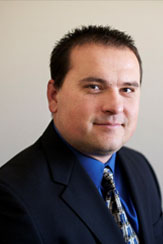 Daniel Ameduri is the editor of the Wealth Research Group and the cofounder of Future Money Trends Letter, FMT Advisory and Crush The Street.
Daniel Ameduri is the editor of the Wealth Research Group and the cofounder of Future Money Trends Letter, FMT Advisory and Crush The Street.




 David Dunworth is part of Marketing Partners LLC and one of the members of the CLEAR Business Directory.
David Dunworth is part of Marketing Partners LLC and one of the members of the CLEAR Business Directory.





 Russell Weigel is a securities attorney and a member of the
Russell Weigel is a securities attorney and a member of the 



 Russell Dennis is helping non profits provide value through his business,
Russell Dennis is helping non profits provide value through his business, 



 Our guest today is one of the members of the
Our guest today is one of the members of the 






 Keynote Speaker, Business Adviser, President of Private and Public Corporations, Inventor, Mentor and pretty good guy, David M. Corbin has been referred to as “Robin Williams with an MBA” because of his very practical, high relevant content speeches coupled with entertaining and sometimes side splitting stories.
Keynote Speaker, Business Adviser, President of Private and Public Corporations, Inventor, Mentor and pretty good guy, David M. Corbin has been referred to as “Robin Williams with an MBA” because of his very practical, high relevant content speeches coupled with entertaining and sometimes side splitting stories.

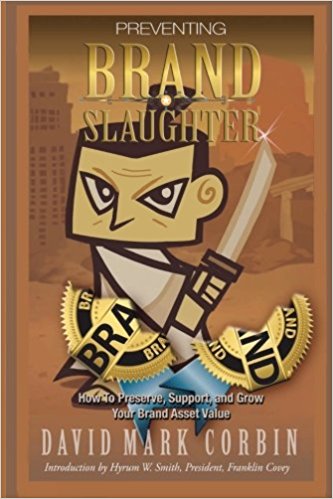

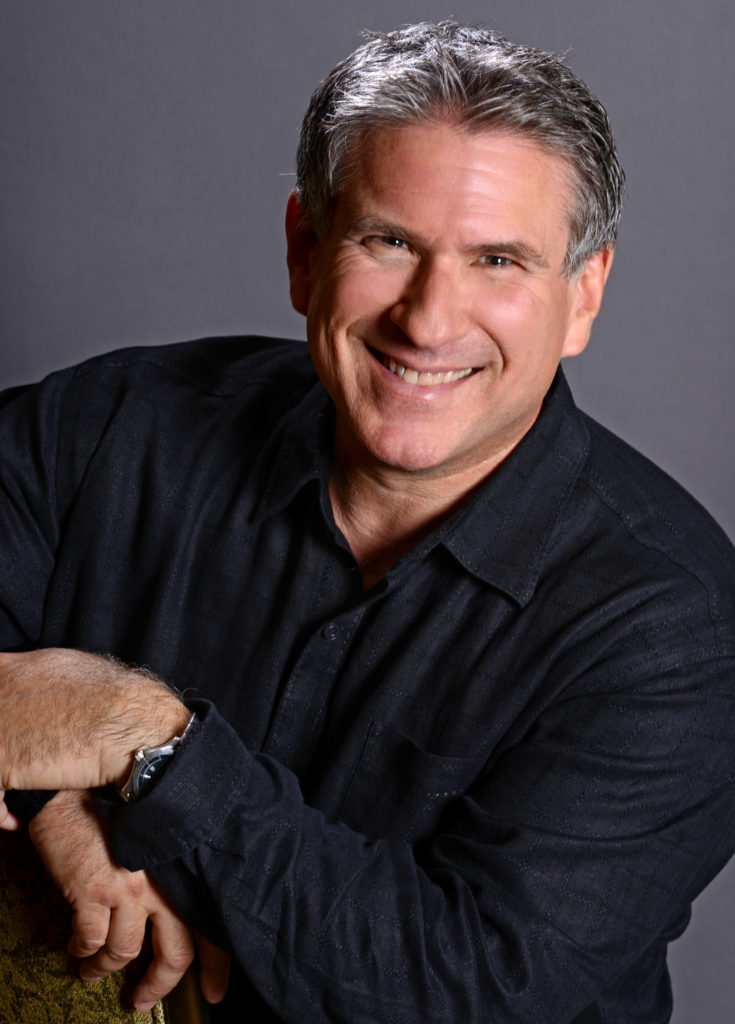 Steve Farber is the president of Extreme Leadership, Incorporated, and the founder of The Extreme Leadership Institute, organizations devoted to the cultivation and development of Extreme Leaders in the business community, non-profits and education.
Steve Farber is the president of Extreme Leadership, Incorporated, and the founder of The Extreme Leadership Institute, organizations devoted to the cultivation and development of Extreme Leaders in the business community, non-profits and education.




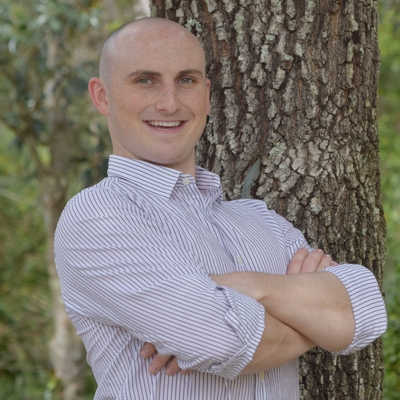 Nathan Hirsch is the CEO of
Nathan Hirsch is the CEO of 



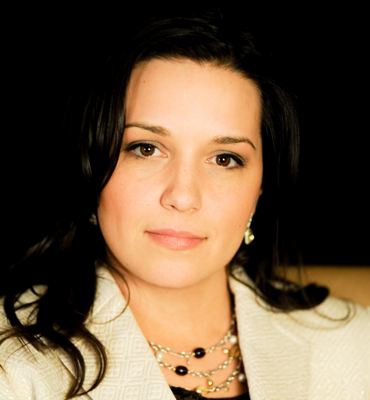 September Dohrmann is the COO of
September Dohrmann is the COO of 



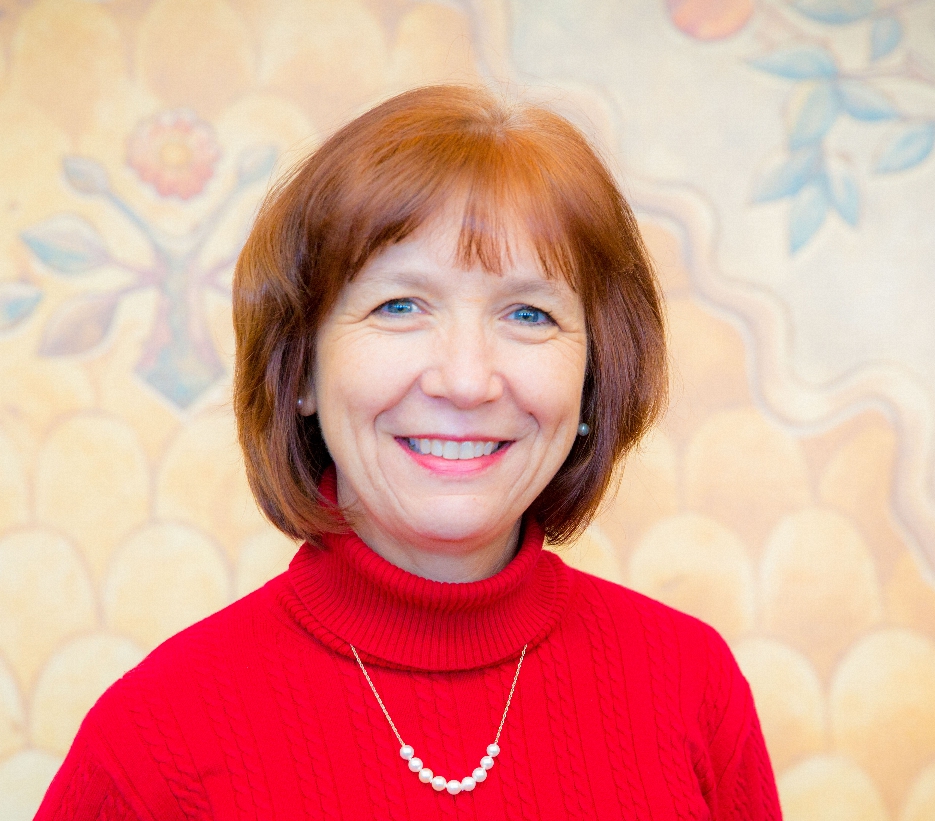 Betsy Westhafer is the Founder and CEO of ActionMasters Network, Editor-in-Chief of Extreme Focus Magazine, a Faculty Member of CEO Space International, and an Extreme Focus Mental Performance Certified Coach. She is also the publisher of ThoughtMasters Magazine
Betsy Westhafer is the Founder and CEO of ActionMasters Network, Editor-in-Chief of Extreme Focus Magazine, a Faculty Member of CEO Space International, and an Extreme Focus Mental Performance Certified Coach. She is also the publisher of ThoughtMasters Magazine



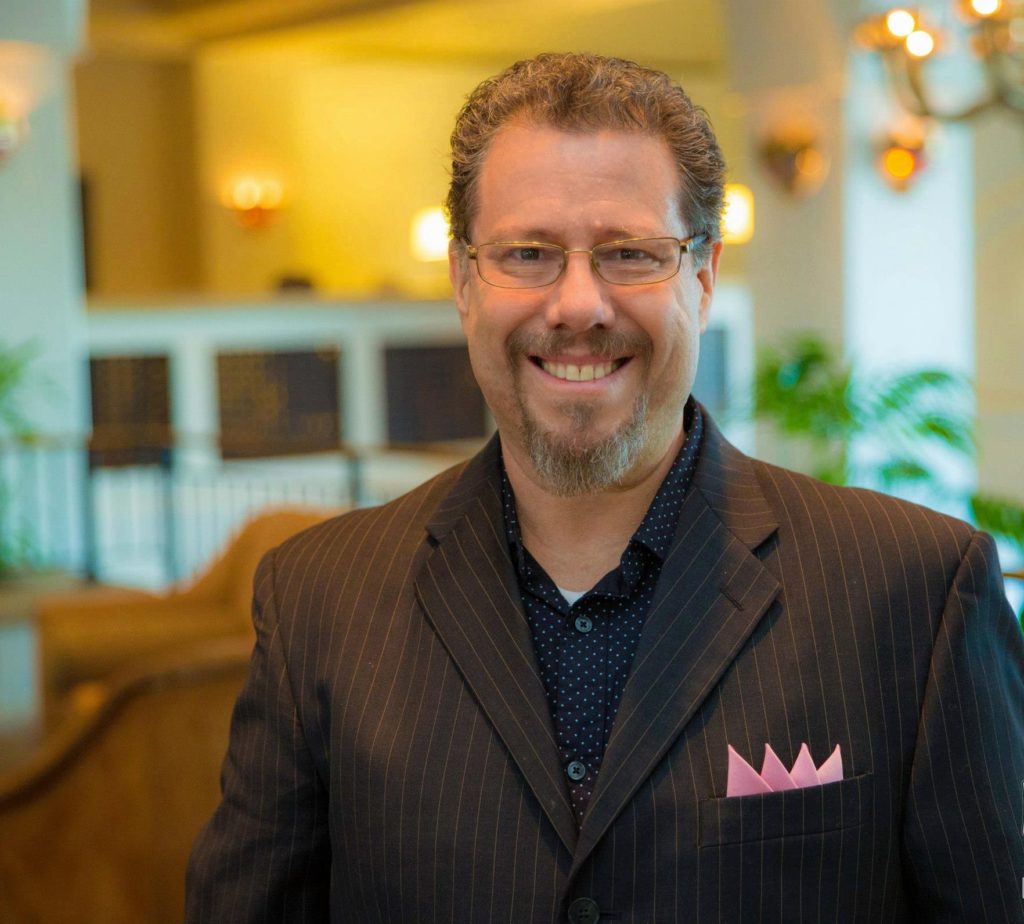 After overcoming numerous personal obstacles, including extreme poverty, a broken home, family illnesses and deaths, severe bullying, drug addiction, and even attempting suicide, Keith Leon went on to become a multiple best-selling author, book publisher, and book mentor and is now the CEO of
After overcoming numerous personal obstacles, including extreme poverty, a broken home, family illnesses and deaths, severe bullying, drug addiction, and even attempting suicide, Keith Leon went on to become a multiple best-selling author, book publisher, and book mentor and is now the CEO of 



 Nichole Carpenter is highly detailed oriented and organized and has devoted her business to helping small businesses grow. With a background as a Project Manager for a software company, Nichole understands the systems required to make a business run effectively.
Nichole Carpenter is highly detailed oriented and organized and has devoted her business to helping small businesses grow. With a background as a Project Manager for a software company, Nichole understands the systems required to make a business run effectively.










